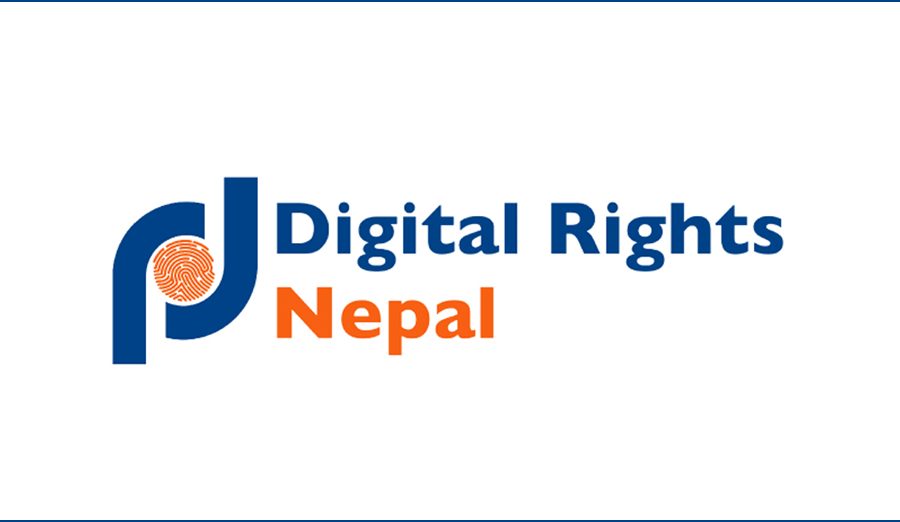
काठमाडौं ।
A group of almost 28 concerned organizations including Digital Rights nepal, has lambasted the act of banning messaging app telegram by the government. They have issued a joint press statement including 3-point demand asking to lift the ban terming it a grave violation of constitutionally guaranteed freedoms.
The full text of the joint press statement reads as follows:
We, the undersigned civil society organizations, express our deep concern and strong disagreement with the directive issued by the Nepal Telecommunications Authority (NTA) on July 18, 2025 (2082/04/02 B.S.), instructing internet and telecom service providers to block access to Telegram, a messaging application. The directive, issued at the request of security agencies and under the instruction of the Ministry of Communication and Information Technology, cites efforts to control online fraud and money laundering. However, the decision appears to be unilateral, opaque, and made without sufficient evidence or legal basis.
Freedom of expression is the backbone of a democratic governance system. Articles 17 and 19 of the Constitution of Nepal 2015 guarantee freedom of expression and communication as fundamental rights of every Nepali citizen, rights that extend equally to the digital space. Platforms like Telegram have become integral to the exchange of information, civic participation, educational engagement, social activism, and community coordination in Nepal.
In a developing digital society like Nepal, where public access to various digital tools is gradually expanding, such a unilateral ban not only limits citizens’ rights to choose their means of communication but also seriously obstructs the overall flow of information and communication. This decision calls into question the government’s commitment to press freedom, digital inclusion, and access to information.
While the state must take criminal activities involving misuse of platforms seriously, such actions must be addressed through the legal frameworks and processes envisioned by the Constitution. In a 2024 ruling related to the government’s ban on TikTok, the Supreme Court of Nepal directed the government to regulate social media platforms through appropriate legislation. In line with that order, a draft Social Media Regulation Bill, 2025 is currently under consideration in the National Assembly. Blocking an entire platform without a valid legal ground is inconsistent with democratic norms, citizens’ fundamental rights, and the rule of law. It also contravenes Nepal’s obligations under international human rights instruments such as the Universal Declaration of Human Rights (1948) and the International Covenant on Civil and Political Rights (1966), which guarantee the right to seek, receive, and impart information and ideas of all kinds, regardless of frontiers.
If a platform is misused to commit criminal acts, accountability must lie with the individual perpetrators, not with the platform or its broader user base. Section 43 of Nepal’s Electronic Transactions Act also clarifies that network service providers are not criminally or civilly liable for third-party content merely because they provide access to such data or information. While the government claims that Telegram has been used for unlawful activities, it has not made public any evidence, legal orders, or regulatory processes justifying the ban. Telegram has publicly stated that it has cooperated with the Government of Nepal and has acted on legal requests to remove fraudulent content. In this context, imposing a ban without exhausting cooperative and transparent avenues is a clear failure of procedural fairness.
Protecting freedom of expression, access to information, digital rights, and democratic values is a shared responsibility. This kind of unilateral ban not only suppresses civil liberties but also erodes public trust in a digital future. This ban will directly impact journalists, human rights defenders, students, professionals, small entrepreneurs, digital campaigners, and the general public.
Therefore, we, the undersigned organizations, call on the Government of Nepal and the Nepal Telecommunications Authority to respect constitutional provisions and ensure that internet governance is based on principles of legality, necessity, and proportionality. We urge the following:
1. The Nepal Telecommunications Authority must immediately lift the ban on Telegram.
2. Regulation of any digital platform must be conducted in full compliance with fundamental constitutional rights and international human rights standards.
3. To address legitimate concerns around the regulation of digital platforms and digital rights, a process of transparent, inclusive, and accountable dialogue must be initiated among all stakeholders (government, civil society, technical experts, and platform representatives).
Signatory Organizations:
1. Digital Rights Nepal (DRN)
2. Digital Rights Action Group (DRAG)
3. Freedom Forum
4. Digital Media Foundation
5. Media Action Nepal
6. Center for Media Research – Nepal
7. ChildSafeNet
8. Body & Data
9. Online TV Journalists Association Nepal
10. Information and Human Rights Research Center (IHRC)
प्रकाशित: १५ श्रावण २०८२, बिहीबार